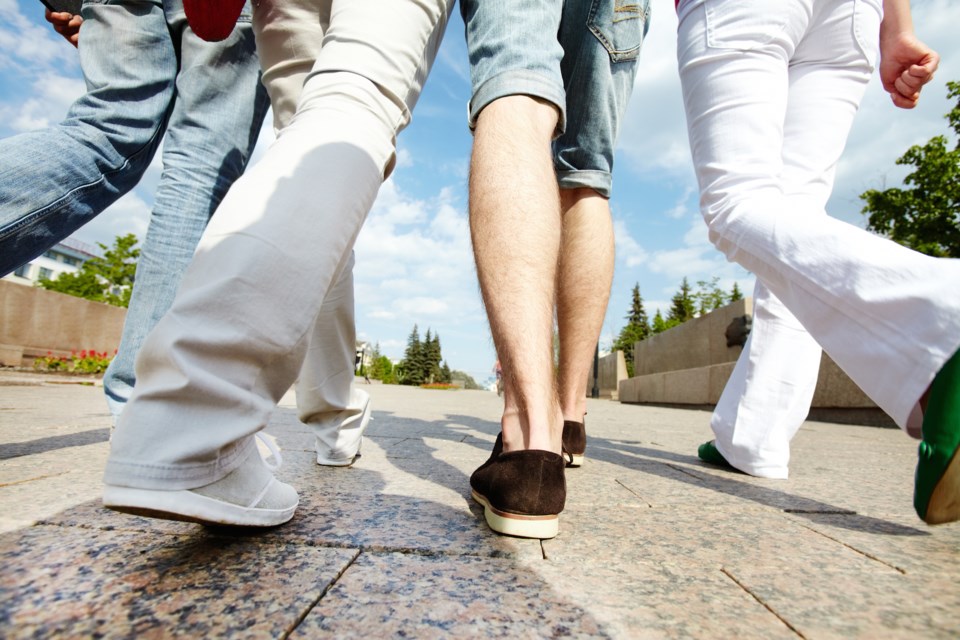Colin Atkinson assumed his ankle was twisted from a match of tennis after he experienced a substantial amount of weakness, which caused him to trip and fall.
But as the weakness persisted, the Sault Ste. Marie resident sought out a neurologist, thinking a nerve was pinched in his back.
After multiple appointments, tests, scans and bloodwork, Atkinson was diagnosed with Amyotrophic Lateral Sclerosis (ALS) in August of last year at the age of 60.
Originally, after the diagnosis, a sense of embarrassment filled Atkinson.
He would trip and fall in public, and bystanders would get confused.
He said he realizes how difficult it is to explain to someone who is watching the disease happen right in front of them.
By participating in the ALS Society of Canada’s Walk to End ALS in Sault Ste. Marie, Atkinson hopes to encourage people to help each other in times of struggle, and live life to the fullest.
“ALS is a very complicated and unknown disease,” said Atkinson. “If you have ALS, it might be 10 years, it might be six months. There is no timeline for it. You must do what you can when you can. Go out and enjoy life.”
This will be the first walk that Atkinson is participating in. He plans to cross the finish line on his own two feet. For the remainder of the walk, his partner, Kirsty, and members of her workplace will represent him.
The walk, happening June 25 at Roberta Bondar Park, in his eyes, is a crucial fundraiser for the ALS Society of Canada, an organization that’s been beneficial in his journey. He understands that research is a slow process. But as awareness increases, so does that research.
“It might not save me, but it could save the next person.”
Communities across Ontario are coming together in support of the ALS Canada Walk to End ALS, which supports more than 3,000 Canadians living with ALS.
There is a total fundraising goal of $1.9 million across the province at 20 events.
According to a news release from ALS Canada Walk to End ALS, 40 per cent of proceeds are directed to the national ALS Canada Research Program where they are invested in the best ALS research in Canada, while 60 per cent is used to provide community-based support to people and families living with ALS.
In Ontario, funds go towards community-based support including helping people living with ALS navigate the healthcare system and receive much-needed assistive equipment from the ALS Canada Equipment Program, among other initiatives.
For more information on your local event or to donate, visit https://walktoendals.ca/ontario.
To support Kirsty Atkinson's team with a donation, visit this link.
